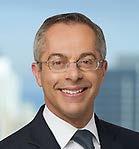POST-FORUM REPORT:
Family Wealth Report

POST-FORUM REPORT:
Family Wealth Report
A summary of key insights from a day of expert discussions, innovative pitches, and strategic networking – highlighting actionable take-aways to navigate today’s investment landscape.










































































WealthBriefing is the leading subscription-based business intelligence service for the wealth management community, with the latest news, analysis and in-depth features from around the globe. WealthBriefing subscribers are part of an international community for whom staying abreast of the latest industry developments is a crucial part of their professional practice. Readers find our content on topics such as strategy, M&A, important people moves, investment management and asset allocation to be an essential resource in a fast-moving world.

















































































































The Asia-Pacific region’s meteoric rise as a major wealth management market has sparked huge demand for region-specific business information. WealthBriefingAsia was launched in 2009 to satisfy this growing information requirement, and it is the only wealth management news site focusing exclusively on the Asia-Pacific region. Providing indispensable news, features and industry views that are always relevant and concise, WealthBriefingAsia allows subscribers to conserve that most precious of all resources: time.











































































The North American wealth management market is one of the largest and most diverse in the world, and is markedly different from those in Europe and the Asia-Pacific region. Multi and single family offices in particular are a well-entrenched,integral part of the private wealth management landscape. Family Wealth Report provides need to know business intelligence in a convenient and easy-to-read format – straight to subscribers’ inboxes every day. Nowhere else will you find such high quality, in-depth and often exclusive content all in one place.








































A unique thought-leadership platform, WealthBriefing’s events foster intellectual debate on the challenges and opportunities facing the industry and are designed to be an optimal use of wealth managers’ precious time and present an excellent networking opportunity.




























WealthBriefing has added to its offering for the global private banking and wealth management communities by running thirteen annual awards programmes for the family office, private banking, wealth management and private client communities. The awards programmes are focused around three main category groupings: experts (individuals and teams); products and services for wealth managers and clients, and institutions of all sizes and types













































WealthBriefing has unrivalled access to the most senior wealth management professionals across the globe, meaning that our research reports represent guides to future best practice as much as being barometers of current industry trends.



















Heritage & Horizon: Proven Family Office Principles for Lasting Prosperity
Rethinking Risk and Return: Smarter Asset Allocation for Long-Term Success
A Powerful Investment Most Investors Overlook: Paying Less in Taxes
Breaking Down Silos: The Need for a Conduit to Connect Private Markets with Investor Demand
Unlocking Private Capital Markets: Discovery, Diligence & Deliver
You’re Dead! Now, What Happens to Your Prized Collectibles?
What to Do When Your Children Don’t Want to Run the Family Office

CHARLES PAIKERT
US Correspondent New York Family Wealth Report
The investment issues confronting family offices, such as a switch to private markets, through to current volatility, collectibles, and impact, were put under the microscope in the annual investment forum in New York, hosted by this news service.
Wealth managers and vendors received both practical advice and updates on major industry trends at Family Wealth Report’s annual Family Office Investment Forum in Manhattan on April 23rd.
Wealthy families are increasingly mobile across international borders, said Simran Sandhu, head of ESG, Institutional Services and Fund of Funds Product, Citco Fund Services companies, a trend also noted in this publication’s recent report on the Latin American market based in Miami, Florida.
Despite recent headlines, family offices continue to be interested in impact investing and ESG investments, Sandhu said. A more concerning trend, according to Ernesto Mairhofer, head of private wealth and family offices for Citco, is the fact that only one-third of family offices have put a succession plan in place.
One potential way to reverse the trend, suggested Fredda Herz Brown, founding principal of Relative Solutions, is to position the process as more of an organic transition that allows children in the family to make decisions, rather than a more formal “succession.”
The accelerating shift of family office investments and portfolios into private markets has been a major industry trend, noted Mike Raso, co-founder and managing partner of Conduit Private Partners. Indeed, family offices are stepping up their due diligence to unlock and

access private capital markets, according to panelists Claire Champy, vice president at Atlas Innovate, Gareth Lewis, founder and co-chief executive of Delio and Mrinalini Lhila, founder and managing principal of 360 Capital Advisors.
Nonetheless, family offices overall remain “underinvested” in private markets, with private equity and venture capital accounting for only about one-fifth of family office investments, said Maxime Seguineau, founder and managing partner of Raido Capital Partners, who moderated the session on private markets.
When doing due diligence on private companies, seek out experts who have differing viewpoints, Champy cautioned. And beware of two “red flags”: companies going after too many verticals and companies who claim they’re about to sign a “very large” client.
When it comes to investments, veteran family office executive Neil Nisker, co-founder, executive chairman and CIO of Our Family Office, warned that today’s volatile environment poses “greater challenges than any time in the 53 years I’ve been doing this.”
Nisker pointed out flaws in the vaunted Sharpe Ratio, noting that the ratio didn’t consider unpredictable ‘black swan’ events: “what used to be a one on 100 years event now happens every year.” He went on to tout his own SIR Ratio, which he defined as performance divided by volatility.
The best investment strategies aren’t flashy but more like “watching paint dry,” Nisker maintained. And when looking at venture capital funds, he advised family offices to only invest with “top decimal managers.”
Buying assets isn’t the only way to think about investing, Peter Culver, co-founder of Freedom Family Office, reminded the audience in a presentation arguing that paying less in taxes is a “powerful investment most investors overlook.”
“The biggest risk to wealth is paying taxes,” Culver told the audience. He urged family offices to focus on reducing taxes on ordinary income, capital gains and estates by using a variety of structures and strategies such as buying private placement life insurance and using solar tax credits.
The “phenomenal growth” of collectibles as an asset class has been another major investing trend, according to Thomas Ruggie, founder and CEO of Destiny Family Office.
Brian Hughes, the longtime consultant who is now president of Eton Advisors, moderated the provocative panel “You’re dead! Now, what happens to your prized collectibles?”
Collectors need to tell their family what’s in their collection so there are no surprises, said Matthew Erskine, owner of Erskine & Erskine law firm, reminding the audience that families have nine months to have the collectibles appraised for the Internal Revenue Service. “There are two aspects to a collection,” Erskine said: “the actual object and the market value of the object.”
Mindful that capital gains tax on collectibles is 28 per cent, many surviving family members would rather give an object away than sell it. But Erskine said it’s a mistake to assume that a charity would want to receive a collectible as a gift.
Erskine also stressed that collectibles are an unregulated market, and Ruggie compared the asset class with the illiquid real estate market. “You can make money if you hold on for a while,” he said, “but you can’t sell right away.”
The Forum’s final session, moderated by Joseph Reilly, CEO and founder of Circulus Group, touched on a sensitive topic: “What to do when your children don’t want to run the family office.”
One tactic family offices can take, according to Relative Solutions principal Fredda Herz Brown, is to have a transparent process to evaluate which of the family’s children is best suited to lead the family office, ideally including a third party who is not a family member.
Brown also urged families to maintain relationships with children who don’t want to be part of the family office. While these children may have no interest initially, they may change their minds as they get older, she said. “But if you don’t stay connected,” she warned, “they will never come back.”







Managing Director, Citco Trustees (Cayman) Limited
Niall joined The Citco group of companies in 2017, initially as Managing Director for Citco Corporate Services (Ireland) Limited before moving to Cayman in June 2021 to take up new roles as Managing Director with Citco Trustees (Cayman) Limited and Citco (Bahamas) Limited. Niall is a fellow of Association of Chartered Certified Accountants, holds a BA form National College of Ireland in Accounting and Human Resources and has completed a Diploma & Certification in Corporate Governance with Institute of Directors in Ireland and is currently a member of the Institute of Directors, International Branch.
ERNESTO
Head of Private Wealth and Family Offices, Citco Corporate Services Inc., Miami
Ernesto is a qualified lawyer with more than 25 years of experience working with private clients and family offices globally. Supported by his team, Ernesto implements and manages bespoke structures that align with clients’ estate planning, wealth preservation and investment strategies. He is a full member of STEP (Society of Trust and Estate Practitioners) and FIBA (Florida International Banking Association).
Head of ESG, Institutional Services and Fund of Funds Product, Citco Fund Services
Simran Sandhu is responsible for formulating and developing new products for Fund allocators, Institutional clients, and Family offices. Simran’s remit includes full gamut of product responsibilities from product ideation, strategic planning, execution, marketing, and delivery. She started her career in Product Development at Goldman Sachs and has held product development roles at State Street and Duquesne. Her expertise include innovation, business transformation, reporting and analytics, and client delivery.
anaging a diversified global family office has become increasingly challenging in recent years, amid changes to the complexity of the investment landscape.
Increasing exposure to private markets, reporting, and ongoing regulatory upheaval are combining with traditional
headwinds family offices face from areas such as succession planning to put them to the test.
During a presentation in New York, the Citco Group of Companies (Citco), a network of independent companies worldwide which has provided family office services for more

than 75 years as part of its service offering - shared how they are helping family offices to overcome these challenges.
Citco’s Niall Gallagher, Managing Director, Citco Trustees (Cayman) Limited, Simran Sandhu, Head of ESG, Institutional Services and Fund of Funds Product, and Ernesto Mairhofer, Head of Private Wealth and Family Offices, discussed how Citco has been supporting families with their investment structures, portfolio reporting, fund administration, and estate planning solutions for eight decades.
70% of wealthy families lose their wealth by the second generation, and 90% by the third1
While wealth is fleeting, legacy endures. True family prosperity isn't measured in assets alone—it's about preserving values, creating impact, and most importantly, maintaining harmony among beneficiaries across generations.
Trust is fundamental to achieving this, but what can erode trust is opacity and complexity. Therefore, radical transparency is needed, empowering families to build clarity and confidence, enabling them to focus on what matters most.
The evolving landscape and growing uncertainty in the market are further compounding these challenges, with Citco’s team highlighting several key challenges facing family offices:
1. Family offices are increasingly running sophisticated investment strategies where asset allocation to private funds and direct investments are increasing. This is adding to operational complexity and the need for multi-asset expertise to manage these portfolios.
2. There is a lack of holistic reporting that unifies all assets. With complex portfolios comes the need for additional and enhanced portfolio reporting to manage risk and exposure. A combination of liquid and illiquid assets in portfolios makes data-aggregation a challenge, meaning it can be hard to understand the overall risk and exposures in portfolios.
3. Document management is also a challenge. Family Offices need a secure way of storing family documents that can be easily accessed via beneficiaries across countries and continents. Additionally, the operational challenges of investing in complex private markets are compounding the need for improved document management for investment operations in order to handle increasing volumes and avoid document drudgery.
4. Among some of the trends and challenges we see with Family Offices, it is central to highlight the importance of robust succession planning. Many Family Office sur veys indicate this as a top priority, but unfortunately only one-third confirmed they have a formal succession plan. Ensuring a smooth transition from one generation


to the next one can be complex, particularly when multiple families members are involved, with each person potentially harboring different ideas and long-term ambitions.
5. The evolving regulations and reporting requirements can be demanding for Family Offices, as they need to stay up-to-date and ensure adherence to legal and regulatory frameworks which are constantly changing. This task becomes more onerous in the context of increasingly internationalized Ultra-High-Net-Worth families who may live in different countries and have their assets spread across different jurisdictions. This results in the need for family offices to track developments and navigate the regulatory landscape at both the local and global level.
6. Procrastination is something that we repeatedly see with some families; they know they need to do something, but they postpone it until it is too late. Sometimes they have very robust structures for their investments but have weak (or no) structures at all for a smooth transfer of wealth.
7. As Family Offices transform and embrace technology across family management and portfolio management, this is adding to the need to manage information security and cybersecurity risk.
8. Choosing a professional, internationally recognized business partner is key. Citco’s experienced group of trustees offers uninterrupted services without potential conflicts of interest.
To effectively navigate these challenges, families need more than just a service provider—they need a trusted partner with proven expertise and a comprehensive understanding of multi-generational wealth management. The right partner should combine deep industry experience with cutting-edge technology solutions, ensuring families can preserve both their wealth and their legacy for generations to come.
At Citco, we’ve been majority-independently owned from the beginning, enabling us to better serve our partners. We cultivate a culture that puts clients at the center, because your satisfaction starts with our independence.
With over 70 years’ of experience serving the world's most sophisticated families, Citco is a true global solutions partner that provides the expertise, technology, and trust needed to overcome complex challenges and secure your family's lasting prosperity.
1 A 20-year research project on 3,200 families by US-based wealth consultancy Williams Group shows 70 per cent of wealthy families lose their wealth by the second generation, and 90 per cent by the third.
For more information visit:
www.citco.com



WNEIL NISKER
Co-Founder, Executive Chairman & CIO, Our Family Office
Neil is a trusted and respected figure in the Canadian financial services industry. With well over 50 years of experience, Neil has served as President of Fiera Private Wealth, as the company’s Executive Vice Chairman and a member of its Board of Directors. He was also President of YMG Private Wealth, Chairman of Nisker Associates and was a driving force behind Brown Baldwin Nisker Ltd for more than 25 years, before it was sold and became HSBC Securities in 1998.
hen it comes to investing, I’ve learned that knowing what everyone else knows is essentially knowing nothing. That insight, borrowed from French writer Remy de Gourmont, has guided my approach throughout my career in investment management. Another critical piece of wisdom, from Professor Leon C. Megginson, underscores adaptability as essential for survival—not merely strength or intelligence. These two ideas encapsulate my philosophy as CIO of Our Family Office: remain open-minded, adaptable, and willing to challenge conventional wisdom.
During my recent presentation, I shared several foundational truths to reset expectations around investing. First and foremost, investors often overlook the inherent flaw in traditional money management: many managers receive bonuses even when their clients lose money. This misalignment of incentives highlights a pervasive issue that often compromises client outcomes.
Additionally, basic arithmetic—something we learned in grade school—is still relevant. In the decade from 2000 to 2010, the S&P 500 was down over 40% twice. The arithmetic is: if you’re down 40%, you need to gain 67% just to get back to where you were. Too often, investors forget the simplicity and importance of fundamental calculations that underpin sound investment decisions, which brings us to Warren Buffett’s famous two rules of investing: “Rule number one, never lose money. Rule number two, never forget rule number one.” Despite its simplicity, it’s advice rarely practiced consistently.
A significant shortcoming I frequently observe is the disproportionate emphasis placed on returns rather than on risks. Most advisors comfortably discuss potential upside but rarely address downside scenarios with equal rigor. In our
everyday lives, we insure our lives, health, and physical assets. Why not take an approach to portfolio construction that insures against loss?
Roseanne Roseannadanna of SNL fame always said, “it just goes to show, it’s always something.” We know “once-in-alifetime” events happen every year. The implication is clear: portfolios must be resilient and prepared for frequent, unexpected disruptions. Such preparedness requires a deep understanding of risk, a topic investors often misunderstand or under-appreciate.
One fundamental principle of wealth creation that I emphasized is the “Rule of 72,” which demonstrates how quickly investments double based on their annual return rates. This simple concept, combined with the powerful effects of compounding, illustrates why strategic patience and disciplined long-term planning are vital. We believe time is the currency of the future. You can always make more money, but you can’t make more time.
Critically evaluating traditional investment metrics, such as the Sharpe Ratio, has also shaped my investment approach. While this widely-used metric can offer insights into past performance relative to risk, it carries significant flaws. It looks backward, assumes a stable and universally agreed-upon “risk-free” rate, and fails to account adequately for extreme market events—the notorious “Black Swans.” Relying solely on historical data is insufficient in today’s volatile markets; thus, forward-thinking risk management strategies are necessary, including Capital Market Assumptions.
At Our Family Office, we view asset allocation as the cornerstone of investing, responsible for about 90% of a portfolio’s long-term performance variability. This significantly surpasses the impact of individual investment selections.

Yet, effective asset allocation isn’t simply diversifying investments in isolation; it involves a holistic view of an investor’s total wealth, what we call “Asset Architecture.™” This comprehensive approach includes not only liquid investments but also private businesses, real estate holdings, art collections, and even specialized insurance policies, creating a genuinely integrated investment strategy.
The core of our approach is constructing what I call an “All-Weather Portfolio. “ This portfolio includes diverse asset classes such as private equity, private credit, real estate equity, multi-strategy absolute return investments, direct lending, and other non-traditional categories. It is intentionally designed to navigate various economic climates successfully.
This strategy reflects broader institutional shifts witnessed in the investment community over recent decades. For instance, during the late David Swensen’s tenure, the Yale Endowment Portfolio significantly reduced its traditional stockand-bond allocations from 83% to about 28%, increasingly embracing alternative assets. Institutional investors like the Canada Pension Plan and the Princeton Endowment Fund have similarly diversified their portfolios. These shifts underline an industry-wide recognition of the importance of diversified risk exposure and adaptive allocation strategies.
My team and I meticulously establish our Capital Market Assumptions, emphasizing conservative, realistic expectations for returns, volatility, and liquidity constraints. We consciously integrate these assumptions into every stage of portfolio construction, thereby creating a disciplined investment approach that blends traditional and non-traditional asset classes effectively.
To demonstrate the efficacy of our strategy, we employ our proprietary Simple Investment Ratio (SIR)™, which measures returns relative to volatility more intuitively and simply than traditional metrics. Our All-Weather Portfolio consistently
shows superior risk-adjusted performance compared to benchmarks such as the S&P 500, TSX, and typical 60/40 portfolios. This outperformance validates our comprehensive and cautious investment approach.
Our investment platform balances traditional and non-traditional investments, combining robust income generation with strategic capital appreciation. Key elements include private mortgages, diversified income strategies, high-quality short-term bonds, private equity, real estate income, and strategic absolute-return vehicles. This carefully structured approach ensures resilience and adaptability, protecting and growing wealth through all market cycles.
Ultimately, our goal is clear: manage and grow client wealth sustainably by embracing a broader, more comprehensive approach to risk and return. We remain dedicated to understanding each client’s complete financial landscape, adapting proactively to changing market conditions, and rigorously managing risks.
We serve very demanding families: when markets are up, they expect to be up, and when markets are down, they expect to be up. Our innovative, long-term strategies underscore our commitment to safeguarding and enhancing the wealth entrusted to our care. Even in market drawdowns, our track record has demonstrated that this approach has been successful.
For more information visit:

www.ourfamilyoffice.ca



APETER CULVER
Co-Founder, Freedom Family Office
Peter’s passion lies in helping entrepreneurs and their families thrive both financially and personally. With over 40 years of experience, Peter has uncovered what keeps the rich, rich, and applies these insights to empower his clients with actionable strategies that yield measurable results. As a Yale graduate and former Senior Wealth Director at BNY Mellon, Peter provided comprehensive wealth coaching to clients with portfolios exceeding $2 billion in investments, achieving recognition as a top advisor in one of the world’s most prestigious financial institutions.
t the 2025 Family Office Investment Forum, hosted by Family Wealth Report, Peter Culver, JD—Co-founder of Freedom Family Office and Wealthrive—delivered one of the day’s presentations. In a room filled with seasoned investors and top-tier asset managers, Peter shifted the conversation away from traditional portfolio performance and toward an equally critical, often underutilized, pillar of wealth creation: strategic tax minimization.
Peter opened with a compelling premise: while portfolio management is a cornerstone of wealth building, an equally powerful lever exists in managing and reducing tax exposure. “Designing successful portfolios creates wealth,” he told the audience. “But so does not overpaying taxes—and, in some cases, not paying them at all.”
With decades of experience advising high-net-worth families and entrepreneurs, Peter’s firms—Freedom Family Office and Wealthrive—work at the intersection of investment strategy and proactive wealth coaching. Their focus: helping clients minimize taxes, manage generational transitions, and make smarter long-term financial decisions that go beyond the balance sheet.
Using a simple example, Peter illustrated how taxes erode the compounding power of investments. He showed a scenario where an investor doubles their money but loses 25% of the gain to taxes—resulting in a far smaller end result over time. “Over 15 iterations, that drag results in twice the money for the tax-aware investor,” he emphasized. “That’s not hypothetical—it’s math.”
This led into the broader thesis: family offices and investors should view tax strategy not as compliance, but as a form of alpha. Where investment alpha is uncertain and market-dependent, tax alpha can be engineered in advance —guaranteed through smart structuring.
STRUCTURING FOR TAX-FREE GROWTH: THE CASE FOR PPLI
Peter’s presentation centered on one of the most powerful tools in tax strategy today:
Private Placement Life Insurance (PPLI). This advanced structure allows accredited investors to place assets inside an insurance policy, thereby shielding them from income, capital gains, and estate taxes.
“Life insurance isn’t about death,” Peter clarified. “It’s about creating a vehicle where your investments grow tax-free, distributions are tax-free, and even intergenerational wealth transfers can be made tax-free.”
A compelling case study underscored his point. A California business owner planned to sell his company for $10 million. Before the sale, he moved ownership into a PPLI policy. As a result, he avoided approximately $5 million in capital gains tax. Post-sale, his investment activity continues within the policy—untaxed. He has taken tax-free withdrawals when needed and structured the policy inside a dynasty trust, ensuring estate tax immunity for future generations.
This strategy, Peter noted, is particularly valuable for family offices managing alternative investments—real estate, private credit, venture capital—where turnover and high current income often trigger high tax exposure. PPLI not only defers this impact but eliminates it altogether when structured correctly.

Peter then introduced a broader category; tax strategies. These are tax equity investments—approaches that allow individuals to redirect tax obligations into higher-returning opportunities.
In this structure, investors donate tangible goods (such as commodities) rather than cash to charity. These goods are acquired at a discount, allowing donors to obtain deductions in excess of their cost basis. One example involved a client who donated $75,000 worth of agricultural seeds but received a $300,000 deduction—translating into over $140,000 in tax savings and an 87% ROI. “It’s legal, repeatable, and efficient,” Peter said. “And it can be done annually.”
The Inflation Reduction Act has made solar infrastructure one of the most tax-favorable investment categories in the U.S. Investors can capture substantial credits and accelerated depreciation. Peter shared cases from Ohio, California and New York where clients turned six-figure tax obligations into profitable solar investments. “This is what we mean by tax equity—you’re investing in something real and receiving better-than-market returns in the process,” he said.
Peter’s final example was a strategy solution for eliminating capital gains taxes altogether.
Using a structure based on foreign currency trading that generates tax losses, this strategy can neutralize capital gains in a given tax year.
In one example, a client with $30 million in ordinary income from a business exit faced a $15 million tax liability. With the use of this strategy—alongside others presented—he was able to eliminate his tax bill completely.
“This is not a fit for everyone,” Peter cautioned, “but for the right client, in the right circumstances, it’s transformative.”
Peter closed his presentation with a challenge to the room: “If your wealth strategy begins and ends with what your CPA tells you in March or April, you’re missing the real opportunity.”
He stressed the importance of year-round tax planning, integrated alongside investment management and estate planning. “This is where the best family offices are headed—toward a model that incorporates legal structure, tax efficiency, and capital deployment into one cohesive plan.”
For more information visit:

www.freedomfamilyoffice.com

www.wealthrive.com



WMIKE RASO
Co-Founder & Managing Partner, Conduit Private Partners
Mr. Raso has over 30 years career experience working with institutional and private wealth investors to gain exposure to traditional, alternative and private market investment strategies. Mike has extensive experience with UHNW channel (family offices & RIAs) institutional, intermediary, relationship management and consultants for Alternatives & Private Markets (Private Equity, VC, Private Credit, Hedge Funds, Real Estate, Real Assets). He has a track record as a top performing, cross functional collaborator across Investment Specialist, Client Portfolio Manager and Business Development roles.
hile we’ve seen tremendous improvements in allocator access to private markets over recent years, there are significant challenges that continue to grow beneath the surface. System fragmentation is particularly acute for family offices, multi-family offices, bank trust and RIA firms engaged in acquisitions or expanding their advisory teams. Additionally, the ongoing operational costs of maintaining your program have continued to rise.
Let’s discuss a concrete example on fragmentation. Consider a growing RIA that has acquired three smaller firms in the past two years. Each acquired firm brought their own technology stack:
• Firm A uses Addepar for reporting and has relationships with five private equity managers;
• Firm B operates on Black Diamond and has access to alternative investments through CAIS; and
• Firm C uses Tamarac and has direct relationships with several venture capital funds.
This scenario reflects the reality of our industry. According to a 2023 Cerulli Associates report, the average RIA uses more than seven different technology systems to run their practice, with larger firms often operating ten or more disparate platforms.
The consequences are substantial and backed by data:
1. Operational inefficiency: A 2023 study by the Investment Adviser Association had integration issues cited as the primary pain point by 67% of respondents
2. Scale limitations: McKinsey’s 2023 Wealth Management report revealed that technology integration issues following M&A cost savings were typically 30% lower than initially projected due to system incompatibilities
3. Advisor productivity impact: According to Kitces Research, financial advisors spend only 36% of their time meeting with clients, with administrative tasks around technology systems consuming nearly 20% of their working hours
4. Growth constraints: Ernst & Young’s 2024 Wealth Management Outlook found that firms with well-integrated technology systems grew AuM at an average rate 1.8x faster than those with fragmented systems
Firms that are growing organically have similar system fragmentation issues and can be even more affected by rise in operational costs. This is particularly significant for those advisory firms managing their own internal fund of funds and private market platform. Efficiency improvements for the functions like invoicing, capital calls, document review, data filing/integration, client onboarding and communication are clearly needed.
A standardized, out-of-the-box technology solution is unlikely to address the nuanced challenges of system fragmentation.. The path forward needs to be driven by “white board discovery” that can break down the workflow processes to the step by step details. Only then can the process begin to develop a framework that integrates improvements while embracing embedded client constraints. A key consideration is to find the right advisory relationship and be open to some level of operations outsourcing, so the Firm’s personnel can

focus on its “core competencies”. The ideal solution will not be the same for everyone. The right approach is to implement a partner with custom specialized personnel, agentic AI and workflow improvements that are the right fit for the current scenario and can adjust in the future.
The typical industry response has been to force standardization or the adoption of a “new solution” that will be the answer. This has led to allocators and advisory firms to be overwhelmed by the abundance of choice. The post adoption issues for systems that do not connect easily can be even worse requiring operations staff to do necessary “work around fixes”. The downstream effect can lead to turnover. According to a 2023 Fidelity study, 71% of advisors who changed firms cited “technology constraints” as a significant factor in their decision to leave. The same study found that firms allowing technology flexibility reported 42% higher advisor satisfaction scores than those mandating specific platforms.
Another proprietary system that forces firms to abandon their existing relationships and technologies is not the answer. What’s needed is a global adaptor—a solution that embraces the reality of multiple systems rather than restricting who you can work with or how you go about it. This concept isn’t without precedent. The success of middleware solutions in other financial sectors demonstrates the potential. Systems like Plaid and the SWIFT network have applied similar aspects.
Consider how a properly designed conduit would transform operations:
• When a growing RIA onboards a new advisory team, instead of forcing them to abandon their technology stack, the “conduit” would integrate their existing systems while providing access to the firm’s full range of alternative investments.
• Allow the operations team at an MFO that runs their own fund of funds to reduce their time on non core competency functions and increased time for client interactions.
• When a private equity manager wants to expand distribution, rather than building connections to dozens of different platforms, they connect once to the “conduit” and instantly reach qualified investors across multiple systems.
While there is no universal approach to be adopted there are key elements to keep in mind:
1. Open architecture: A commitment to working with—not against—the diverse technology landscape that exists today.
2. Standardized data protocols: Creating unified frameworks for exchanging private market information while preserving security and compliance.
3. Relationship-centric design: Recognizing that in private markets, relationships matter as much as transactions.
Why it matters: A 2024 PwC Digital Transformation survey showed that financial services firms implementing API-first, middleware-oriented architectures achieved 3.5x greater ROI on their technology investments compared to those pursuing monolithic system replacements.
The firms that address system fragmentation and implement custom specialized personnel, agentic AI and workflow improvements for their non core competencies will be the winners. They will be able to scale their businesses without sacrificing quality or increasing operational complexity.
For more information visit:
www.conduitpp.com






Vice President, Atlas Innovate
Since 2017, Mrs. Champy has been investing in disruptive technologies on behalf of Atlas Holdings’ family office. She supports its direct venture program and overseas its third-party fund portfolio. Her responsibilities range from sourcing and evaluating opportunities to assessing potential synergies with Atlas Holdings’ industrial and manufacturing companies. Altas Holdings and its affiliates are a diversified group of 27 platform companies with over 57,000 associates globally and north of $10 billion of annual revenues.
Founder & Co-Chief Executive, Delio
Gareth Lewis is the Founder & Co-Chief Executive of Delio, a fintech company that is transforming private markets by providing the digital infrastructure for leading financial institutions worldwide. He co-founded Delio in 2015 at the age of 25, and since then the company has grown to serve over 50 financial institutions across 18 countries, including Barclays, Coutts, The Earthshot Prize and Apex Group. Founded in Cardiff, Wales, Delio has defied conventional fintech norms by building a globally recognised business outside major financial hubs.
Founder & Managing Principal, 360 Capital Advisors
Mrinalini Lhila is the Founder & Managing Principal of 360 Capital Advisors, which provides fundraising and advisory services to private equity firms. Previously Mrinalini served the private equity industry in various capacities, including Editorial Director for PE HUB’s conferences, Product Manager for StepStone’s fund-of-funds, and as a corporate finance professional for Neuberger Berman, Lehman Brothers and Citi Alternative Investments. She started her career as a Research Analyst at the Federal Reserve Bank.
Founder, Managing Partner, Raido Capital Partners
Maxime Seguineau is a financial entrepreneur and private investor with expertise across capital markets, technology, and alternative investments. He is Managing Partner at Raido Capital Partners, which he co-founded to back financial software and AI-enabled services firms with structured growth equity. Previously, he was Managing Director at Seaport Global, where he co-founded and led Axegine, an AI-driven systematic credit hedge fund. He also served as a credit Portfolio Manager at Millennium Management and was the CEO and founder of Antepo, a real-time collaboration startup he sold to Adobe.

As private capital markets continue their rapid evolution, the ability to access, evaluate, and deploy capital with precision is becoming the true differentiator between success and stagnation. This was the central theme explored at the Family Wealth Report Family Office Investment Forum 2025, where Maxime Seguineau of Raido Capital Partners moderated a timely panel discussion titled ‘Unlocking Private Capital Markets: Discovery, Diligence & Delivery’
Joined by Claire Champy (Vice President, Atlas Innovate), Mrinalini Lhila (Principal, 360 Capital Advisors), and Gareth Lewis (Co-CEO, Delio Group), the panel delivered actionable insights into how family offices and private investors are sharpening their approach across the full investment lifecycle.
Public markets have shrunk dramatically over the past two decades: fewer than 15% of companies generating over $100 million in revenue are publicly listed today. Meanwhile, individuals and families control nearly half of global wealth, but still account for only 16% of assets managed by alternative investment funds.
At the same time, private capital markets have swelled to $13 trillion in AuM, with forecasts projecting growth to $20 trillion—or even $30 trillion—by the end of the decade. Family offices, in particular, are stepping in: the average family office now allocates around 22% of its portfolio to private equity, and 57% expect to further increase their private market exposure in the next two years.
Sourcing differentiated deal flow is becoming harder, not easier. Claire Champy emphasized that even family offices with dedicated internal teams rarely match the sourcing reach of established private equity sponsors.
The solution? Collaboration. Rather than attempting to compete across all sectors, family offices are better served by forming trusted partnerships with a select few specialized sponsors, each offering depth in a particular industry or strategy.
Mrinalini Lhila reinforced this view: “It’s not about volume anymore — it’s about fit, alignment, and bringing forward opportunities that truly match the family’s thesis.”
While private equity deal volume rebounded in 2024 — with global buyout activity up 37% by value — dry powder remains abundant, heightening competition and making sourcing discipline even more critical.
As competition for deals intensifies, diligence has evolved from standard checklists to a much more dynamic, granular process. Gareth Lewis highlighted that the rise of wealth technology platforms is enabling faster, more transparent pre-close diligence.
“In private markets, opacity used to be accepted. Today, investors demand clarity on operational execution, valuation assumptions, and reporting practices — before they commit a dollar”, Lewis said.
Technology is also transforming the diligence process itself, with AI-assisted evaluation becoming a standard practice across leading investment firms.
Investors are increasingly scrutinizing what happens after the capital is deployed. Delivery — meaning administration, reporting, and ultimately exits — is now viewed as an extension of brand trust.


Gareth Lewis emphasized, promise to investors. “Delivery is no longer just an operational task — it’s the final proof of your promise to investors.”
This focus is especially critical amid a backdrop of longer holding periods. Clear reporting, proactive communication, and aligned expectations are no longer optional—they are mandatory.
Family offices possess a structural advantage in their direct mandates over institutional investors: flexibility. Unlike LPs wholly locked into closed-end fund cycles, family offices can move opportunistically during periods of market dislocation — and often extract better valuations and terms when others step back due to timing or rigid processes.
However, this advantage only translates into superior returns if paired with discipline and rigorous diligence. Flexibility without structure invites risk. Flexibility with discipline unlocks premium returns.
In today’s private markets, access is abundant. Execution is the differentiator. As Maxime Seguineau summarized: “Discovery is a network. Diligence is a discipline. Delivery is a promise. And in today’s market, the firms that win are those that can keep all three aligned at scale.”



For more information visit: www.360capadvisors.com www.atlasinnovate.com www.deliogroup.com www.raidocapital.com
Raido Capital Partners is an independent sponsor investing in technology companies powering the financial domain. With an investor base consisting predominantly of family offices and UHNWI, we source and structure deals from our proprietary network and provide operational augmentation post-investment. Our general partners bring a wealth of experience as executives in investment management and enterprise software, as well as founders who have built and successfully exited technology businesses.


You’re dead! Now, what happens to your



Matthew Erskine is the managing partner of Erskine & Erskine LLC, a fourth generation law firm, and The Erskine Company, LLC, a consulting firm. He focuses on strategic planning and legal services for business owners, professionals, individuals, families, collectors, and inheritors of unique assets. Helping his clients and their families solve their problems through customized estate, tax and management solutions. Matt has a particular expertise in the stewardship of unique assets that few other estate planning and trust attorneys or family offices can match.
President, Eton Advisors
Brian leads Eton’s strategic initiatives, growth and thought leadership for the firm’s clients. Prior to joining Eton, Brian founded Hughes Growth Strategies, working with firms who serve UHNW families. He also held leadership positions for two private family offices, Pitcairn, and Threshold Group. With extensive knowledge of wealth management and family office, Brian has been a featured speaker at many programs across the country. He is the Managing Director of the Southeastern Family Office Forum, and serves on the Advisory Board and Faculty of the UHNW Institute, as well as an Ambassador to R360.
Founder & CEO, Destiny Family Office
A 30+ year wealth manager, entrepreneur, author and speaker, Tom’s built a pre-eminent wealth management organization, which, in addition to Destiny Family Office, is comprised of Destiny Wealth Partners - an independent RIA and InvestmentNews’ 2024 RIA Team of the Year, various alternative investment funds, and a co-investment fund. Tom is focused on providing privileged access to institutional-caliber alternative investments and has combined his passion as an avid collector with his financial expertise to help clients turn personal interests into powerful investments.
t the recent Family Wealth Report Family Office Investment Forum, held April 23 in New York City, a compelling panel discussion explored the high-stakes intersection of passion, planning, and preservation in the world of collectibles. Titled ‘You’re Dead, Now What Happens to Your Collections?’ the session brought together estate planning, family office, and wealth management experts to examine how collectors can ensure their prized assets endure and retain value beyond their lifetime.
Moderated by Brian Hughes, President of Eton Advisors, the panel featured Matthew Erskine, Partner at Erskine & Erskine, and Thomas Ruggie, ChFC®, CFP®, Founder and CEO of Destiny Family Office. Together, they provided strategic and personal insights into the complex world of financial, tax, and estate planning and asset management for collectors who own significant collections ranging from fine art and rare coins to exotic cars, sports memorabilia, and even digital assets like NFTs.

Hughes opened the session by spotlighting the meteoric rise in the value of many collectible markets. He noted that artwork and gold coins have doubled or quadrupled in value since 2008, while the NFT market soared by an astonishing 21,000% in 2024 alone. Ruggie added a personal example: a game-used Babe Ruth bat he purchased for $16,000 in 2008 is now valued at more than $300,000. These stories highlighted a key theme of the session — collectibles are no longer just hobbies; they can be powerful and valuable components of an individual’s estate.
Despite their value, collectibles are often overlooked in financial and estate planning. Erskine reminded attendees that even a simple one-page plan can be immensely helpful, quoting a familiar adage: “Something is better than nothing.” For significant collectors, financial, estate, and tax planning that overlooks, excludes, or avoids collections is no planning at all.
Ruggie reiterated Erskine’s belief that any plan that fails to account for collectibles isn’t complete, sharing his own wake-up call — pondering what would happen to his collection and his family if he didn’t come home one night. That experience served as the impetus to put his own collectibles “house” in order, and to share what he learned on that journey with other like-minded collectors and their advisors through the creation of a proprietary Collectibles Scorecard. The scorecard is designed to help collectors look at where they are, where they ideally want to be, and what pain points require action in 10 essential areas including acquiring, preserving, cataloging, insuring, valuating and ultimately transferring their collectibles.
The Panel laid out a roadmap for effective asset management, including assessing current holdings, maintaining collections, and developing an exit strategy. They stressed the importance of viewing oneself not just as a collector but as a steward, taking a long-term perspective on preservation and succession.
Beyond acquisition and enjoyment, stewardship means thoughtful organization, regular documentation, and the establishment of a plan for eventual transfer. Valuation plays a critical role in this. Collectors were advised to obtain annual informal valuations through websites like Invaluable and supplement these with periodic formal appraisals from independent, unconflicted professionals. Detailed records and accurate values ensure collections are properly incorporated into estate plans — and reduce the risk of conflict or tax missteps later.
Liquidity and tax implications were also top of mind. The panel cautioned against leaving heirs with illiquid assets and few options, especially when faced with potentially significant tax liabilities. The conversation also covered optimizing tax implications of sales, inheritance and charitable gifting of collectibles including tax deferral, estate freezes, and planning for charitable giving.
One example involved a collector who was forced to borrow against their collection at interest rates as high as 30%. With proper planning, these costly and reactive decisions can be avoided. The panel also addressed key risk
management measures, from insurance and security to environmental controls for storage.
A particularly thoughtful part of the discussion centered around the distinction between being a collector and being a steward. While a collector focuses on the joy of owning and discovering, a steward considers the long-term implications — cultural, philanthropic, and familial — of the collection. The most successful succession plans bridge both perspectives, providing future generations with guidance and governance, even if they don’t share the original collector’s passion.
Exit strategies were examined in detail, including the decision to hold, sell, or donate assets. Panelists stressed the importance of open dialogue and education among family members, and the creation of flexible plans that align with both financial goals and personal values. For heirs uninterested in or unfamiliar with the collection, structured guidance can be the key to preserving intent and avoiding mismanagement. The importance of establishing good governance, educational resources, and innovative approaches to multi-generational wealth transfer was emphasized.
As the session concluded, the panelists shared a unified call to action: Start planning — do something. Whether it’s beginning a conversation with your family or seeking professional advice, even the smallest step can have a profound impact. The act of sharing information about a collection — its value, location, and significance — is a vital way to ensure its future and reduce risk.
Attendees left with practical tools, including access to Ruggie’s Collectibles Scorecard and Erskine’s detailed planning checklists and case studies. These resources aim to keep the conversation going and help collectors take essential steps toward protecting the legacy behind their most treasured possessions.
By embracing stewardship and planning, collectors can transform their personal passions into enduring legacies.
For more information visit:

www.erskineco.com

www.erskineco.com

www.destinyfamilyoffice.com



IFREDDA HERZ BROWN
Founding Principal, Relative Solutions
Fredda Herz Brown is widely recognized for her groundbreaking work with enterprising families and their trusted advisors. From her numerous contributions over a quarter century, she has helped to establish standards of professional practice and develop the body of knowledge which defines the work of the field to this day. Her early focus on families emerged out of a research project examining successful first-to-second generation transitions at a world-renowned postgraduate training center in family systems work, which she co-founded.
JOSEPH W REILLY JR CEO & Founder, Circulus Group
Mr. Reilly is an investment and strategy consultant to family offices and the host of the Private Capital Podcast. He was the co-founder and founding president of the Family Office Association, a global forum for single-family offices that is based in Greenwich, Connecticut. Previously Mr. Reilly helped to start a single-family office and foundation in New York where he was an investment manager for five years. He was an energy specialist focused on options and futures trading at Credit Agricole Indosuez in New York prior to that and started his career at Salomon Smith Barney.
n family enterprises, the handover of leadership and legacy is often imagined as a formal, orchestrated event. But according to Freda Herz Brown, a seasoned advisor to multi-generational families, the real work begins much earlier and often in moments far less scripted.
“It’s never too early,” Brown shared with dashing interviewer Joe Reilly during the recent Family Wealth Report Investment Forum in New York. “Too late is when you need somebody and you’re about ready to walk out the door. I’ve seen where somebody, right at the point they really want to retire, is when they really start seriously thinking about now what do I do?”
Brown advocates for a generational approach to continuity and one that’s less about titles and timelines and more about building fluency, connection, and a shared sense of purpose from an early age. In some families, she noted, even young children are invited into the room, not to weigh in on decisions, but to absorb the rhythm of discussion, to see that serious topics can be discussed openly, and to sense that they, too, are part of the unfolding story.
But what happens when the story diverges and when a child grows up and says they don’t want to be part of the business?
One story she shared involved a young woman who was the family’s largest asset holder and who wanted no involvement in the business or the family office. The challenge, then, became less about drawing her back in and more about respecting her autonomy while preserving the relationship and knowing that the situation may not be for life.
This emotional complexity is especially apparent in the “in-between” years when young adults are out of college, unsure of their place in the family ecosystem. Brown noted that most people don’t know what they want to do post-college. She described one family that imposed a rule: no one could work in the business until they had spent at least five years elsewhere. They had a structure and a board and an educational program so they could be involved in learning about it, but had to make their own way in the professional world.

It’s this intentionality and this slow cultivation of readiness that Brown sees as essential. Not everyone will take on a leadership role. But everyone, she believes, can be brought into a culture of ownership. That, too, is a kind of stewardship.
“What a family office does is not just invest financial assets, but you also invest in the people. Right? I think. And so investing in your younger generation is a really important thing to do.” She encourages families to build internal mentoring structures, especially between board members and younger generations, as a way of cultivating leadership before it’s needed.
Brown’s notion of resilience also weaves throughout her approach. For her, it’s not a heroic bounce-back from hardship, but a family’s ability to bend, listen, and adapt together.
“I think resilience is a muscle and it doesn’t demand that you have a really hard time but…it demands a sense of confidence in yourself, an ability to know that other people have faith in you.”
That invitation, she believes, begins not with a succession plan, but with a conversation: one that starts early, adapts often, and prioritizes belonging over obligation.
Because in the end, the strength of the enterprise lies not in its assets—but in the people entrusted with its future.

www.relative-solutions.com

www.circulus.substack.com


